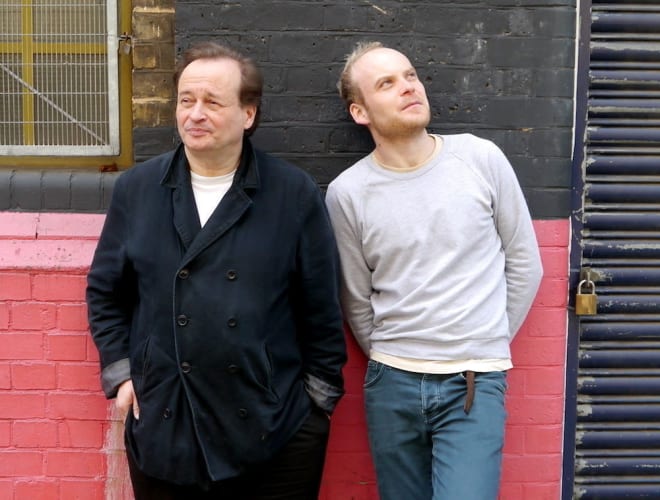Beginnings of CHORALE
A co-production between Presence Theatre and Actors Touring Company in association with Belgrade Theatre, CHORALE actually began life at the Arcola in London in 2011, with a one-off performance called Making the Sound of Loneliness. Tarlton was performing in Actors Touring Company’s production of Roland Schimmelpfennig’s The Golden Dragon at the time, and ATC’s director Ramin Gray encouraged the cast to each present a piece before or after the evening’s show. Tarlton had harboured the hope of “doing something” with Shepard’s stories for years and this proved a perfect opportunity.
“We presented a very rough version [at the Arcola] but it seemed to work and we felt that we had something,” he says. The show was then commissioned and restaged for the 2012 Latitude Festival where it received an enthusiastic reception, leading to the most ambitious incarnation yet in Chorale.
“The road’s what counts. Just look at the road,” remarks a character in Shepard’s 1972 play The Tooth of Crime. And the notion of a roadshow does seem particularly appropriate for Shepard, a writer for whom the seductions and dangers of the road have always been central preoccupations. With its evocations of deserts, highways and motel rooms, lost souls, hard drinkers and fractious, fractured families, Shepard’s work feels quintessentially American. Are there particular challenges for a British company in presenting it?
“Directing American plays is challenging,” Usher admits. “There’s a certain energy in Shepard’s work that’s not necessarily in the English rhythm of doing things. And it’s much more about the rhythm than just getting the accent right.”
“That’s one of the reasons I spent two weeks in California,” says Tarlton. “It was about living there and absorbing small-town America, going to Duarte and then into the desert on the edge of Joshua Tree and walking for four or five hours a day. And also just going and sitting in bars and talking to people.
“The other thing, though, is where do you go to research Shepard? In his work he traverses the whole continent. But going to Duarte seemed to make complete sense because it’s informed so much of his writing, this place that he ran away from. I think that what we all run away from informs our adult lives far more than we think.”
Asked how he first discovered Shepard’s writing, Usher recalls that he was “a big fan of the American poets of the 60s, of the Beats, the New York poets and also of American music. So Shepard was very much in the picture. I liked theatre but I didn’t like mainstream theatre. I was into the New York avant-garde and Shepard was part of that scene. I liked the disregard for theatrical convention in his work, and that he wrote plays that were like rock songs.”
Tarlton first came to Shepard’s writing primarily through his short stories. “I just loved the world that he created there and the wonderful detail. He can make going to a motel room for the night sound exciting and sexy, and make you feel that anything can happen. There’s something inherently cool about those stories.
“But you go back and read them again and see that there’s a lot of pain and fear that’s being masked. In his most recent collection, Day Out of Days, he lets that out, the mask slips.” Since The Animal (You) interweaves pieces from the range of Shepard’s short story collections, audiences will experience a unique take on the development of Shepard’s voice in CHORALE with, as Usher puts it, “the mature voice talking to a youthful, exuberant one.”
The Roadshow will supplement Tarlton’s dramatisation of the short stories in The Animal (You) with productions of two Shepard plays: 1968’s The Holy Ghostly (which hasn’t been produced in London since its 1973 King’s Head première) and 1985’s The War in Heaven.
